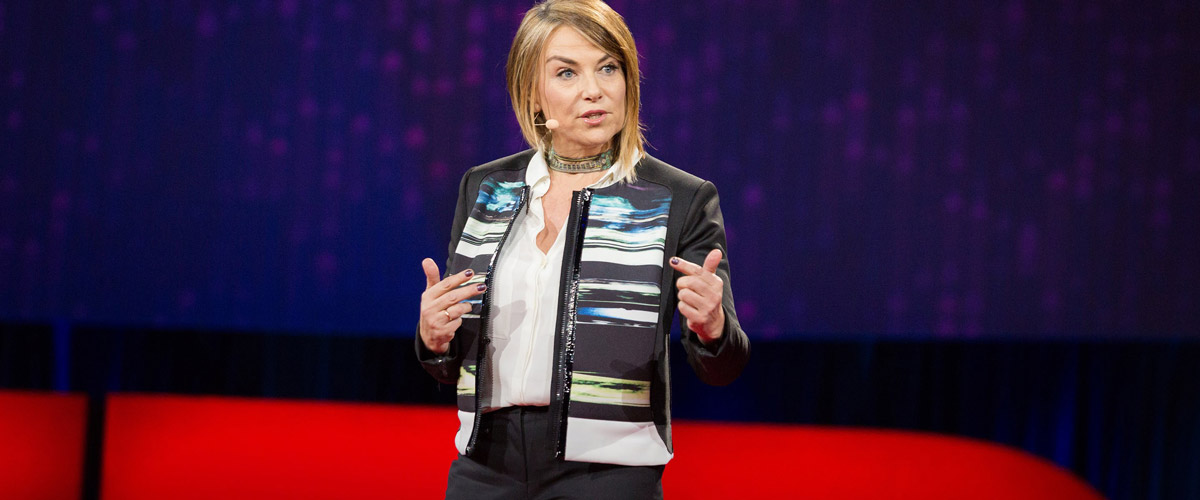Esther Perel is changing the way we look at infidelity by showing us that sometimes there’s good that comes out of it.
Before you start screaming at your computer screen she was also careful to explain that she is neither pro or anti infidelity but instead thinks we need to re-evaluate the way we view it.
“Would I ever recommend it?” she asks. “Now, I would no more recommend you have an affair than I would recommend you have cancer, and yet we know that people who have been ill often talk about how their illness has yielded them a new perspective.”
Perel asks the following questions “Why do we cheat? And why do happy people cheat? And when we say “infidelity,” what exactly do we mean?” Many people have their own version of what they consider cheating so it’s hard to define this word as she explains… “Is it a hookup, a love story, paid sex, a chat room, a massage with a happy ending?” She even questions the double standard of men vs. women, “why do we think that men cheat out of boredom and fear of intimacy, but women cheat out of loneliness and hunger for intimacy?” Do we call it quits? “And is an affair always the end of a relationship?” Perel questions.
Cheating has progressed through time, just as marriage has, “now, monogamy used to be one person for life. Today, monogamy is one person at a time.” Perel’s definitions of what constructs affairs are three key elements:
- A secretive relationship, which is the core structure of an affair
- An emotional connection to one degree or another
- And a sexual alchemy. – “The key word here,” relating to a quote by Marcel Proust, “it’s our imagination that is responsible for love, not the other person.”
Then comes the 3 ways that infidelity hurts differently in current times in Perel’s words:
- We have a romantic ideal in which we turn to one person to fulfill an endless list of needs: to be my greatest lover, my best friend, the best parent, my trusted confidant, my emotional companion, my intellectual equal.
- And I am it: I’m chosen, I’m unique, I’m indispensable, I’m irreplaceable, I’m the one.
- And infidelity tells me I’m not. It is the ultimate betrayal.
Then comes another paradox that occur in relationships even if you are happy with your partner, “we also have never been more inclined to stray, and not because we have new desires today, but because we live in an era where we feel that we are entitled to pursue our desires,” This longing we have of wanting more Perel explains, “because this is the culture where I deserve to be happy.”
Divorce has also evolved, “we used to divorce because we were unhappy, today we divorce because we could be happier,” states Perel. She also begins to explain that before divorce was a shame but nowadays, “choosing to stay when you can leave is the new shame.”
It all boils down to those people, “They are often people who are deeply monogamous in their beliefs, and at least for their partner.” They’re caught in a dilemma, “they find themselves in a conflict between their values and their behavior.”
People claim to feel alive when they’re committing affairs and it’s not always sexual but it was about desire, “desire for attention, desire to feel special, desire to feel important.”
But Perel explains there’s a light at the end of the tunnel for coping with the aftermath of an affair, “Desire runs deep. Betrayal runs deep. But it can be healed.” This opens a window for couple to be honest with each other and really talk about things they’ve been holding to themselves and really get them in a vulnerable state of honesty. “Something about the fear of loss Keep in mind that this isn’t the case for every couple.
“I look at affairs from a dual perspective: hurt and betrayal on one side, growth and self-discovery on the other.” This can be a start of a new chapter in your relationship to help you get raw with each other and how Parel concludes with the idea that, “Your first marriage is over. Would you like to create a second one together?”




